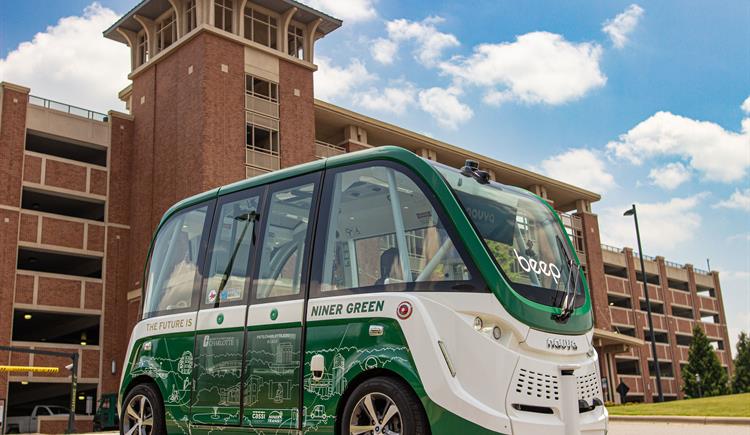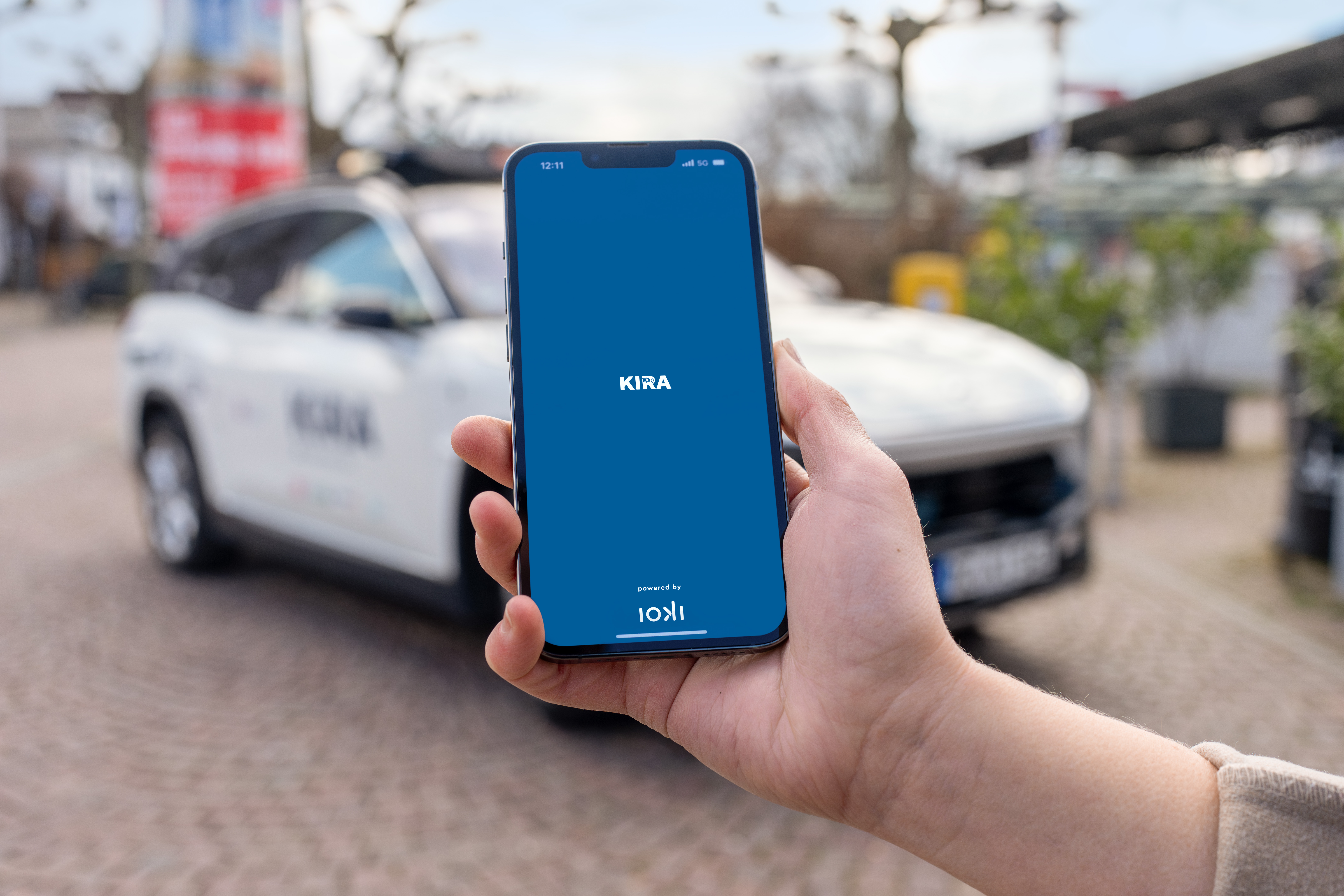
Photo: cassi-unc
Autonomous transit fails to attract public in North Carolina pilot
26 July 2024
by Christopher Carey
The North Carolina Department of Transportation (NCDOT) has released a report summarising the agency’s findings on an autonomous shuttle pilot at the University of North Carolina, Charlotte (UNC Charlotte).
The Connected Autonomous Shuttle Supporting Innovation (CASSI) programme was piloted in the second half of 2023 on a 3.5-kilometre, six-stop route that included the main campus’s light-rail station.
“The pilot at UNC Charlotte featured the most complex testing environment for the CASSI programme to date,” said Sarah Searcy, Senior Advisor for Innovation with NCDOT’s Integrated Mobility Division (IMD).
“Through strong partnerships and by collecting feedback from the public through surveys and engagement events, NCDOT has developed robust analyses, findings and lessons learned on low-speed automated shuttles with connected vehicle features that help guide how the technology can best be used now and evolved to better meet the needs of all riders.”
Results
Key findings from the report include:
- The shuttle’s technology needs to advance further to usefully meet the demands of a university campus and the expectations of its community members.
- The technology is not ready to be used as a conventional transit service for a variety of reasons, including the lack of full vehicle automation, requirement of an onboard attendant to ensure correct and safe movement of the vehicle and interaction with the environment, and the need for automated accessibility features such as an automatic wheelchair ramp, securement system and/or audible stop announcements and instructions.
- While some community members appreciated being able to experience and support new technology through the pilot, most were choosing other options to reach their destinations on campus, whether due to comfort, convenience, reliability, or some other factor.
- The shuttle’s slow speed or delays contributed to the lower performance of the shuttle compared to conventional transit options. Those delays came about due to times when the attendant needed to troubleshoot problems, manually operate the shuttle, or take the shuttle on a less direct path between destinations.
Next steps
NCDOT also funded a separate research project to study the pilot conducted by UNC Charlotte faculty and students.
During the trial phase, the research team also collected an expanded set of surveys to capture the perceptions of shuttle and non-shuttle riders. Findings from this complementary research will be available in a separate technical report later this summer.
NCDOT’s Integrated Mobility Division is currently “exploring new options” for the next set of pilots under the CASSI programme.
Cites Today contacted the shuttle’s manufacturer Beep on the reports findings but did not receive a response at the time of publication.
Image: cassi-unc







